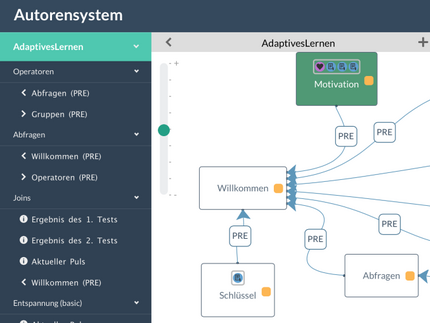MOTIVATE
In order to meet the peculiarities of mobile learning, such as a reduced screen size and deviant interaction forms, but also the short attention span of mobile learners, learning in small learning units and short steps (so-called micro-learning) has become more and more common. Mobile devices, such as smartphones or tablet PCs, allow access to these units of information, which is unrelated to the location and time, enabling periods of time for the knowledge transfer that were previously not available. However, since not every learner has the same previous knowledge or is in comparable situations and therefore has different needs and requirements for the teaching material, it is difficult for the individual to make use of the multitude of information. In addition, the resource constraints of mobile devices (such as memory, computing power, network connection, display size, interaction possibilities, etc.) must be considered.
The aim of this cooperation project is therefore the joint development of an innovative framework for the systematic generation of adaptive mobile applications. To this end, the foundations already existing in both working groups are to be brought together and further developed jointly. Technical new territory is not only the creation of effective and efficient adaptation models and procedures using context parameters and special consideration of the specifics of mobile devices, but also a multi-stage and thus particularly sustainable design principle.

Dr. rer. nat. Tobias Moebert
Wissenschaftlicher Mitarbeiter
Teamleitung Sozio-technischer Kontext

